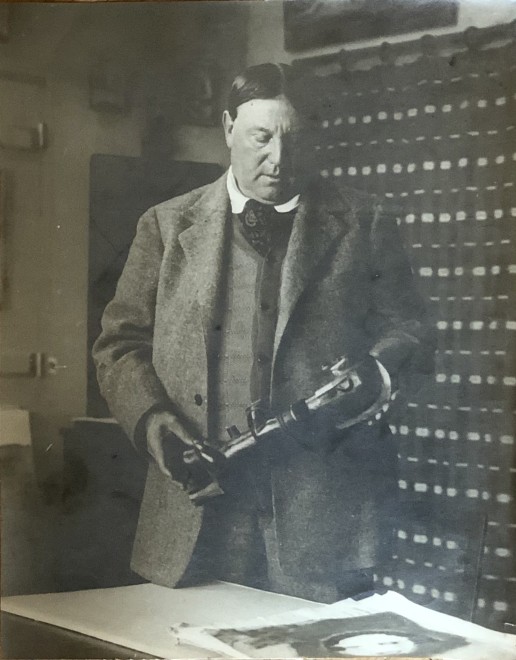Provenance
Formerly in the collection of Alice Prin (Kiki); by descent
Note: An historically important photograph hitherto unpublished. After having painted outdoors on a hot, bright day, Vlaminck stopped at a bistro in Argenteuil for some refreshment. As he stood drinking, he noticed on a shelf bar three African objects. Two of them, painted red, yellow, ochre, and white, were Yoruba pieces from Dahomey, and a third, unpainted and quite dark, was from the Ivory Coast. So struck was he by the force of these objects that he persuaded the owner to let him have them in exchange for buying the house a round of drinks.
Shortly afterward, Vlaminck showed these works to a friend of his father’s, who in turn gave him three more African carvings including a Fang mask. When Derain saw the mask hanging above Vlaminck’s bed he was deeply impressed and offered twenty francs for it. Derain then took the mask to his studio on the Rue Toulaque, and it was there that Picasso and Matisse saw it and were supposedly first incited to enthusiasm for tribal art.
Vlaminck showed another African sculpture to Derain, remarking that it was ‘almost as beautiful’ as the Venus de Milo. Derain then replied that it was ‘as beautiful’ as the Venus. The two men then showed the sculpture to Picasso who topped them both by declaring that it was ‘even more beautiful.’
